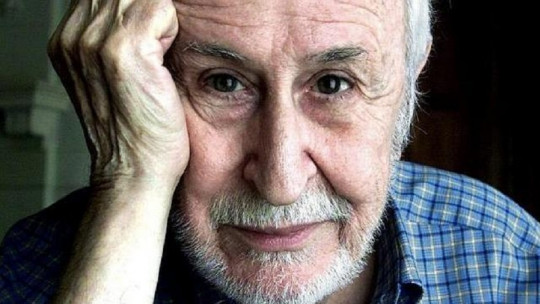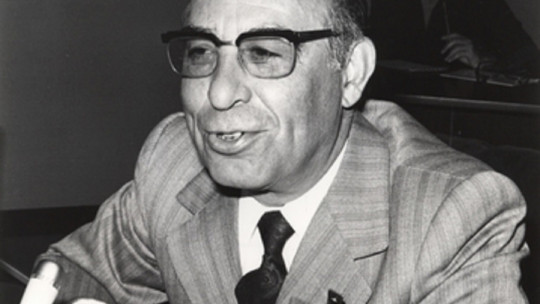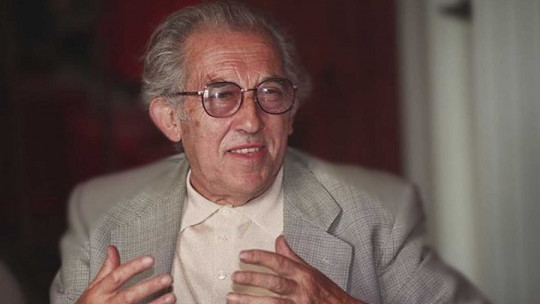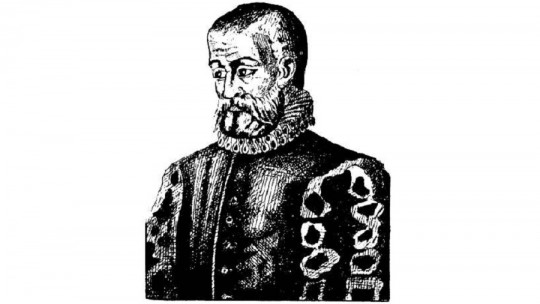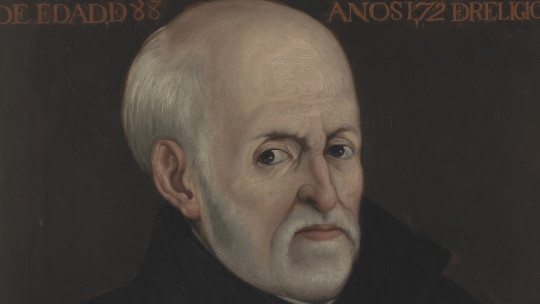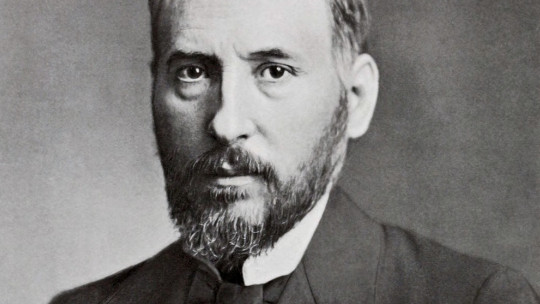José Luis Pinillos Díaz is considered one of the main promoters of contemporary psychology in Spain, along with José Germain and Mariano Yela, among others.
They are responsible for the establishment of the Faculty of Psychology in Spanish universities, after having been a Section of the Faculty of Philosophy and Letters for years. To date, he has been the only psychologist to have received the Prince of Asturias Award and has occupied a chair in the Royal Spanish Academy (RAE).
In this biography of José Luis Pinillos We will briefly review the most important events in the life of this researcher.
José Luis Pinillos: biography of a pioneer of Spanish Psychology
José Luis Pinillos was born in Bilbao in 1919 During his childhood he studied in his hometown until he arrived at university, at which time he enrolled to study at the Faculty of Philosophy and Letters, eventually specializing in Philosophy. He continued his studies in Philosophy in Madrid, obtaining the extraordinary degree award in 1947.
Later he won a scholarship from the Higher Council for Scientific Research (CSIC) that allowed him to continue his academic and research work in Germany, whose currents have greatly influenced his way of conceiving Psychology. There he worked with researchers such as Gruhle, Krotschmer and A. Müller.
1950s: training in England and beginning of his time as a researcher at the University of Madrid
Jose Luis Pinillos He traveled to England in the 1950s, with a scholarship awarded by the British Council to continue nourishing himself with new knowledge from illustrious psychologists that the country had at that time, attending courses taught by Anna Freud, Eysenk, Cattell, Shapiro, Timbergen and many other leading psychologists.
It was there that he began his long friendship with Hans Eysenck, a renowned psychologist for his extensive work on behavioral therapy and his research on intelligence and personality.
In 1953 he began to work as a collaborator with José Germain at the School of Applied Psychology and Psychotechnics and it was the following year when He begins his work as a researcher in the Department of Experimental Psychology at the University of Madrid where he carried out numerous research related to social psychology.
1960s: creation of the first Psychology schools in Spain
It was in the 60s when Pinillos and Germain attempted to create the Faculty of Psychology in the universities of Spain , but this initiative was not possible at that time. Consequently, they launched the creation of psychology schools, among which the Spanish Society of Psychology and the Department of Experimental Psychology at the University of Madrid stand out.
It is notable that Jose Luis Pinillos He obtained the professorship at the University of Valencia in 1962 Before that he had been working as a professor at the Central University of Caracas (Venezuela).
On the other hand, in 1966 he obtained the chair of Psychology at the University of Madrid, holding it for 20 years.
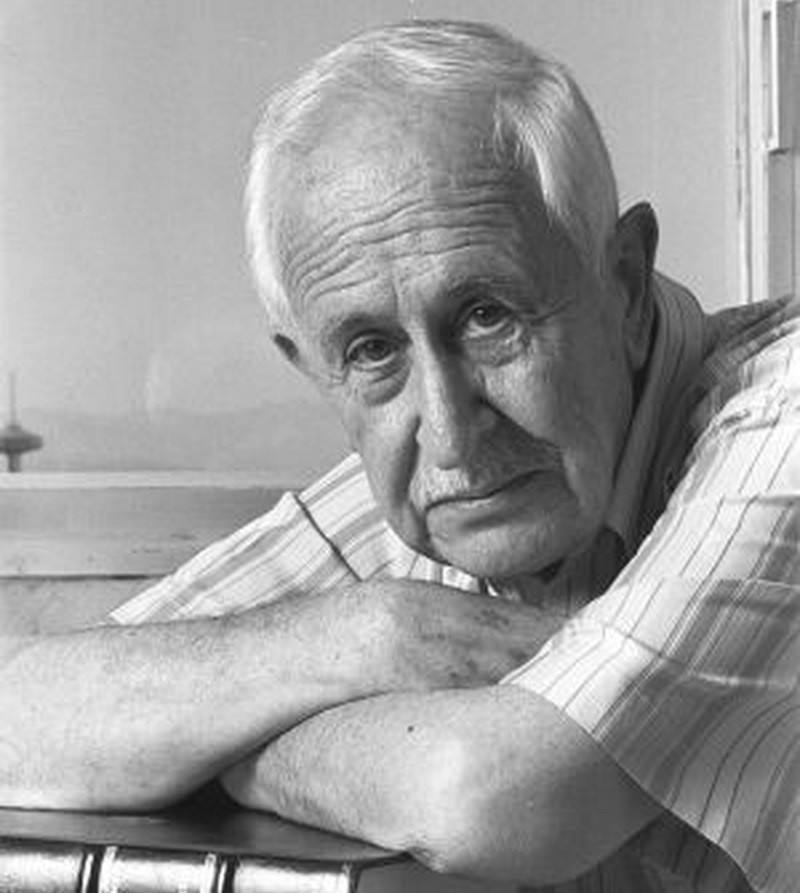
The 70s: establishment of the first Faculties of Psychology in Spain
Entering the 70s, its mission was finally fulfilled and the first Psychology faculties began to be established in the country.
The Faculty of Psychology It began as a specialty of the Bachelor of Philosophy and Letters at the University of Madrid (later named the Complutense University of Madrid) and at the University of Barcelona, being included as a Section within the curriculum of said degree. A few years later this faculty was created at the Pontifical University of Salamanca and the University of Granada.
It is in the following years that the faculties of Psychology begin to proliferate around Spain, being created in the universities of Valencia, the Autonomous University of Barcelona, Deusto, the UNED, the University of Murcia and the University of La Laguna, among others. others.
Regarding José Luis Pinillos, his work and that of his psychologist colleagues, together they had achieved a great advance for Psychology in his country in the creation of a specialized faculty for its study, research and development for the years to come Meanwhile, Pinillos continued as a professor at the Faculty of Psychology at the Complutense University of Madrid, in addition to continuing his work as a researcher and disseminator, highlighting his work “The physical and the mental.”
1980s: stage of recognition of his career as a teacher, researcher and precursor of Psychology in Spain
Pinillos entered the Royal Academy of Moral and Political Sciences in 1983 , delivering a speech entitled “The functions of conscience” at the appointment ceremony. It should be noted that he was awarded the Spanish Society of Psychology Award in that same year and, the following year, the Gold Medal of the University of Salamanca.
The year 1886 was a year full of awards and recognition for the work that José Luis Pinillos had developed since he graduated 4 decades ago. The recognitions include:
In that year he also joined the newly created Colegio Libre de Eméritos, a Spanish non-profit cultural foundation. Then, in 1988 she obtained a chair from the Royal Spanish Academy, the one with the small “s”.
Last stage of his life
José Luis Pinillos Díaz never stopped working, since he began in 1947 as a researcher with a scholarship from the CSIC. Even after his retirement in 1986, he continued to carry out his work as a teacher, researcher, writer, disseminator and member of various academic and cultural organizations, such as UNESCO until his death in 2013.
Currently, in the “Marqués de Valdecilla” Historical Library you can find several documents that belonged to José Luis Pinillos, among which are manuscripts and typescripts written by him during the 70s and 80s. All of them were donated by the Faculty of Psychology from the Complutense University of Madrid and for his family.
- You may be interested: “Juan Huarte de San Juan: biography of this precursor of Psychology”
Contributions to dissemination and the field of research
Jose Luis Pinillos He developed a great work as a popularizer, with the creation of 15 books and 150 specialized works as well as the publication of numerous articles in newspapers such as ABC.
Among his most notable works are “The Human Mind”, “Introduction to Contemporary Psychology”, “Psychopathology of Urban Life”, “The Heart of the Labyrinth” and “Principles of Psychology”, this book being probably the book that It has been cited most in Spanish publications on Psychology until the 21st century, since it was the book that made available to readers a clear image of scientific psychology.
Furthermore, Pinillos He was a pioneer in Spain introducing the currents that were booming during the 20th century, learned during his stay in Germany and England In his work as a researcher, disseminator and teacher he was especially concerned with empirically demonstrating his methods.
According to the doctor in psychology Teresa Sánchez, José Luis Pinillos did not have a solely biological or social approach, but always sought to integrate a vision of psychology that combined biological, neurological and social human perspectives considering that human beings are a product of meaning and the way in which they interpret their history.
He also developed several psychological tests and diagnostic tests in Spanish, among which are the analyzes of the Kent and Rosanoff test (a productive test that consists of the person being evaluated having to respond with the first word that comes to mind in relation to a series. of words told to you by the psychologist who is examining you), the Osgood Semantic Differential, which is used to measure attitudes through the subjective meaning of language and the Eysenck CEP personality test, used with the objective of evaluating three dimensions bipolar personality traits (emotional control, extraversion, and paranoidism).

